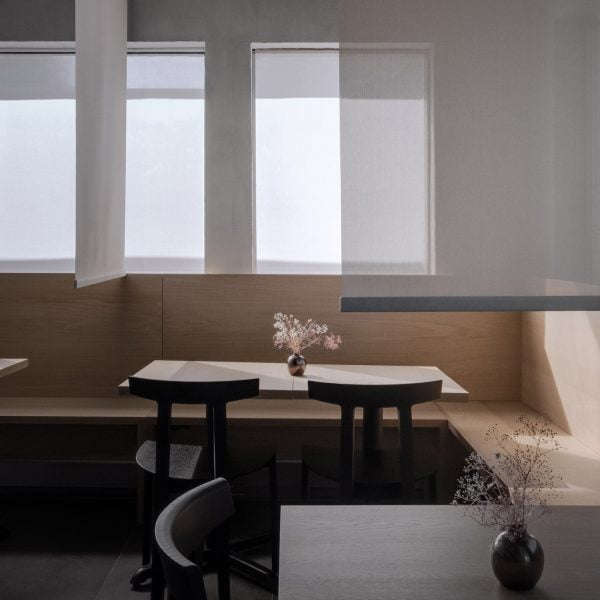Montreal-based architecture office Future Simple Studio has designed minimalist interiors with white oak and textured concrete for a sushi restaurant in Quebec City.
At Sushibox, on the outskirts of the city, Future Simple Studio renovated and expanded the dining space to complement the menu by chef Patrick Landry.
Using strong lines, natural textures and neutral tones, the team created a “simultaneously brutalist and serene atmosphere” that runs throughout the 3,500-square-foot (325-square-metre) space.
“With geometric shapes, elemental materials and handcrafted details, the transportive design allows the colours and textures of the cuisine itself to shine,” said the studio. “Here, design and food unite to create an exceptional sensory experience.”
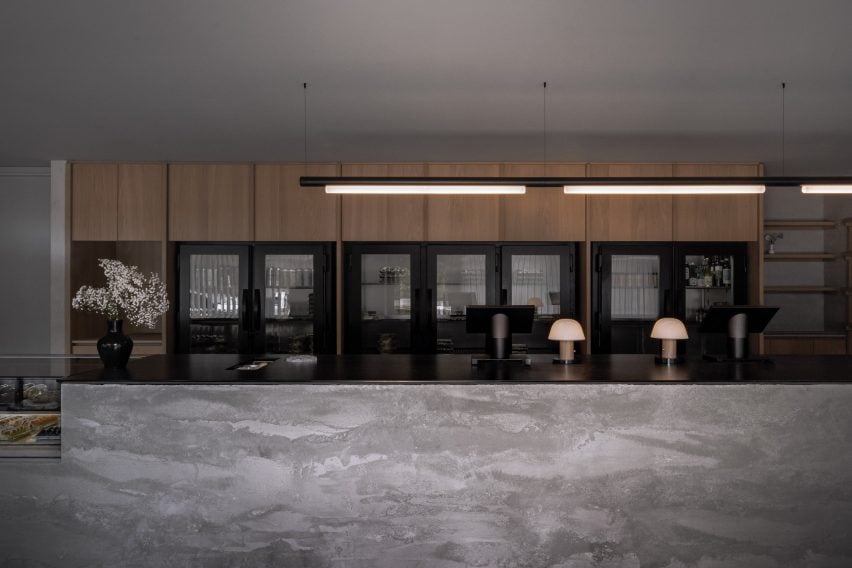
Entry is through a vestibule surrounded by black-framed tightly fluted glass, which opens to the reception area.
This space also serves as the pick-up location for take-out orders, which can be retrieved from a black-topped concrete counter with a painterly textured front crafted by artist Zian Miscioscia.
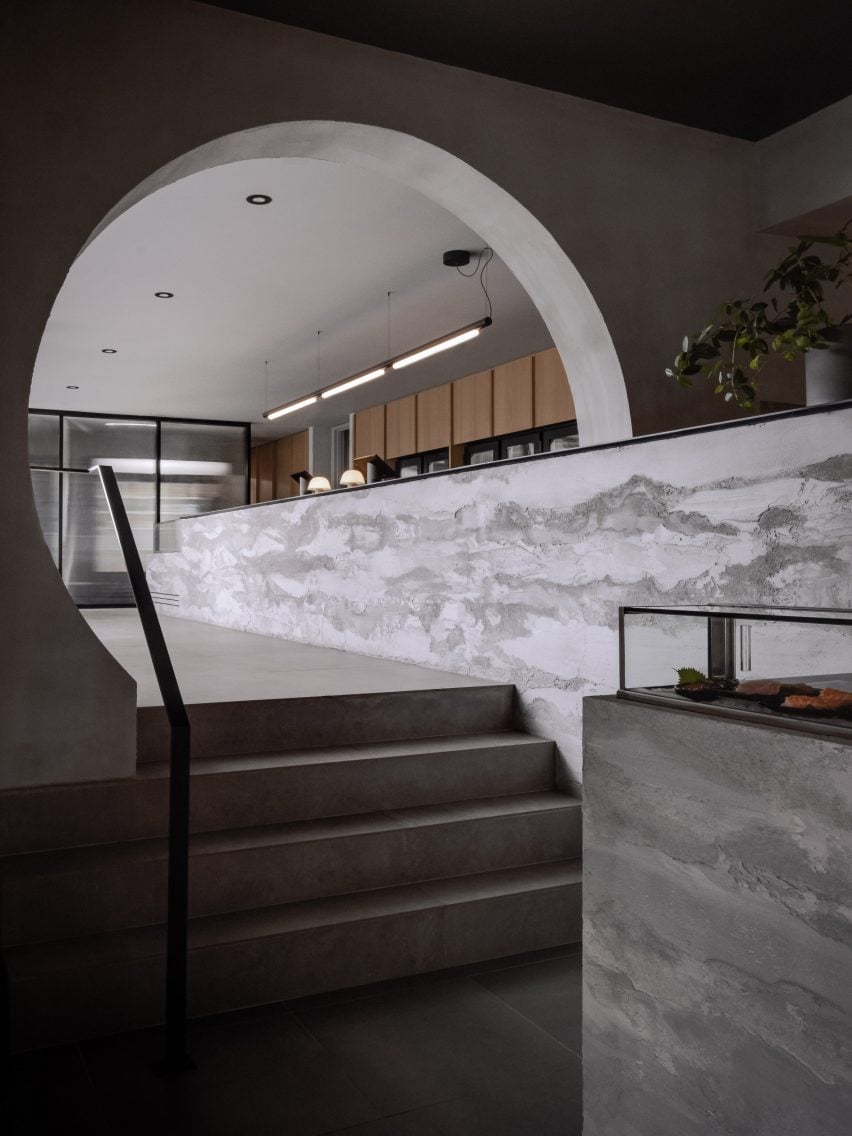
“In the takeout area, the tones are neutral, the lighting is bright, and vertical blinds allow for beautiful slats of sunshine to brush against guests as they place their orders,” said Future Simple Studio.
A circular portal, reminiscent of the moon gates found in traditional East Asian architecture, leads to the dining area via a short flight of steps.
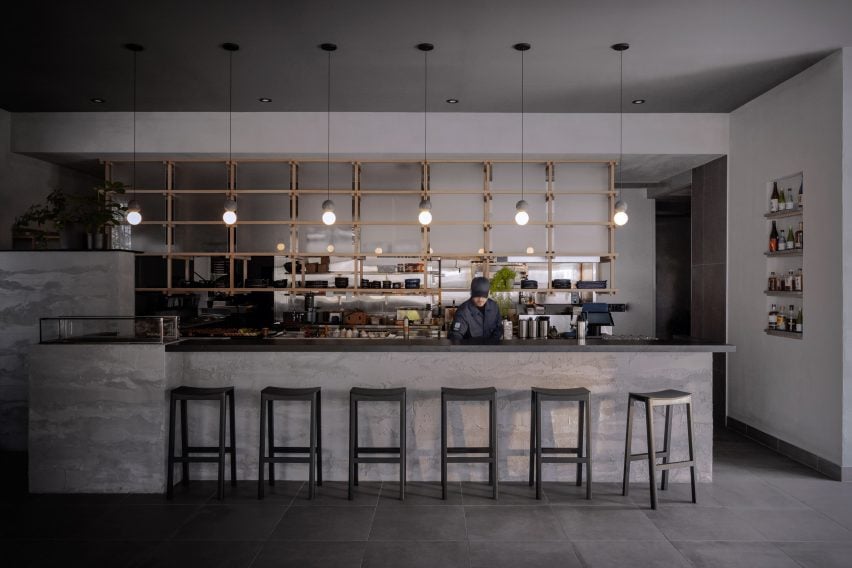
The concrete counter continues through the threshold and eventually jumps down in height to provide a bar overlooking the open kitchen behind.
Delicate pendant lights by David Pompa, with dual globes of lava stone and light bulbs stacked at their ends, form a neat row above each seat along the bar counter.
To provide storage for the kitchen, a system of shelves made from white oak batons is also suspended from the ceiling above stainless steel prep counters.
More white oak panels form a bench that wraps around the dining area to serve multiple tables, which are divided by vertical sheets of translucent fabric.
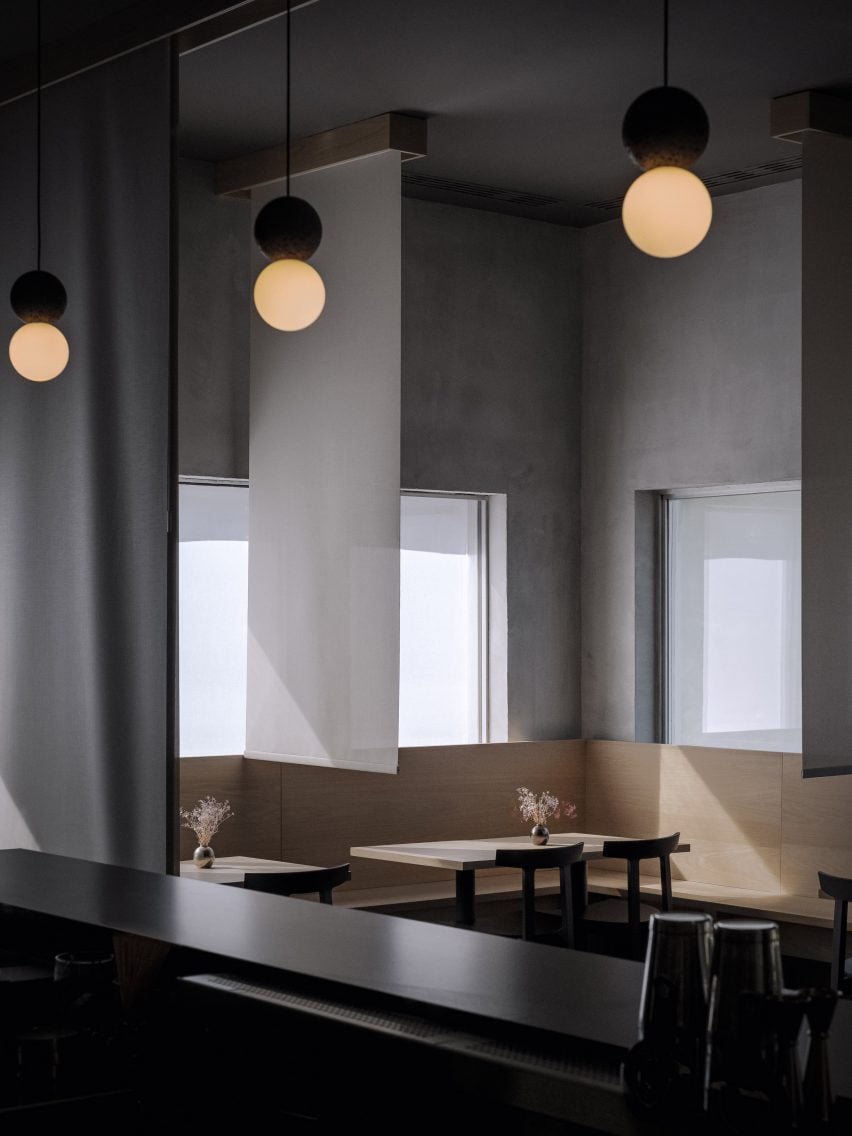
Future Simple Studio was founded in 2018 by Christine Djerrahian with partner Ernst van ter Beek, and has offices in both Montreal and New York.
The firm previously designed a family apartment within a 100-year-old heritage building near Montreal’s Old Port district.
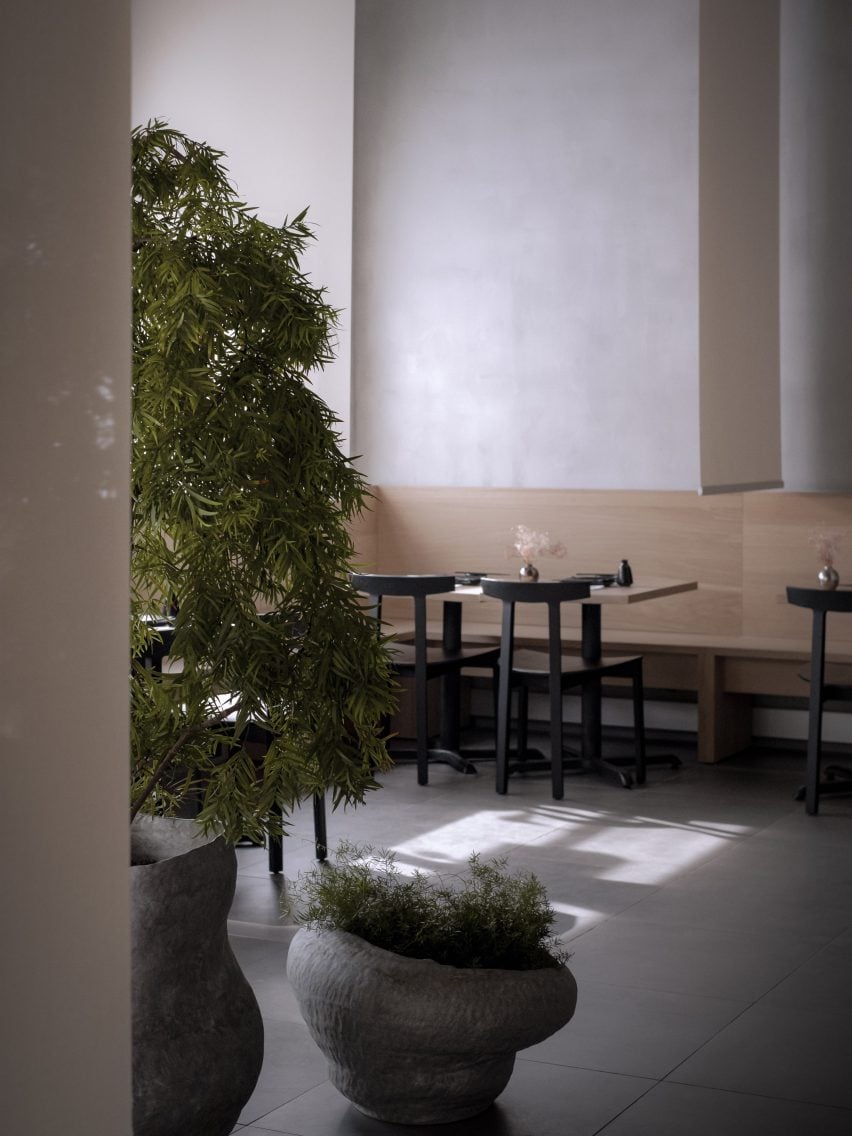
Many sushi restaurants have minimalist interiors influenced by the design style that’s popular in Japan, where the cuisine originated.
Examples around the world include a dark and dramatic spot in The Dubai Mall, the Oku restaurant in Mexico City where “floating tables” are made of wood and steel, and the Sticks n Sushi restaurant in London that blends Japanese and Danish design influences.
The photography is by Félix Michaud.

